
5 minute read
From Ukraine to UK: journey to a new home
from Gey Scotia S/S 2023
Sarah is a fighter. She is always determined to take that first step to make a difference, whether that is big or small. So, when the opportunity arose to host an LGBT Ukrainian refugee couple Sarah and her wife, Helen, were happy to accommodate.
Words by ARRAN PROCTOR
Advertisement

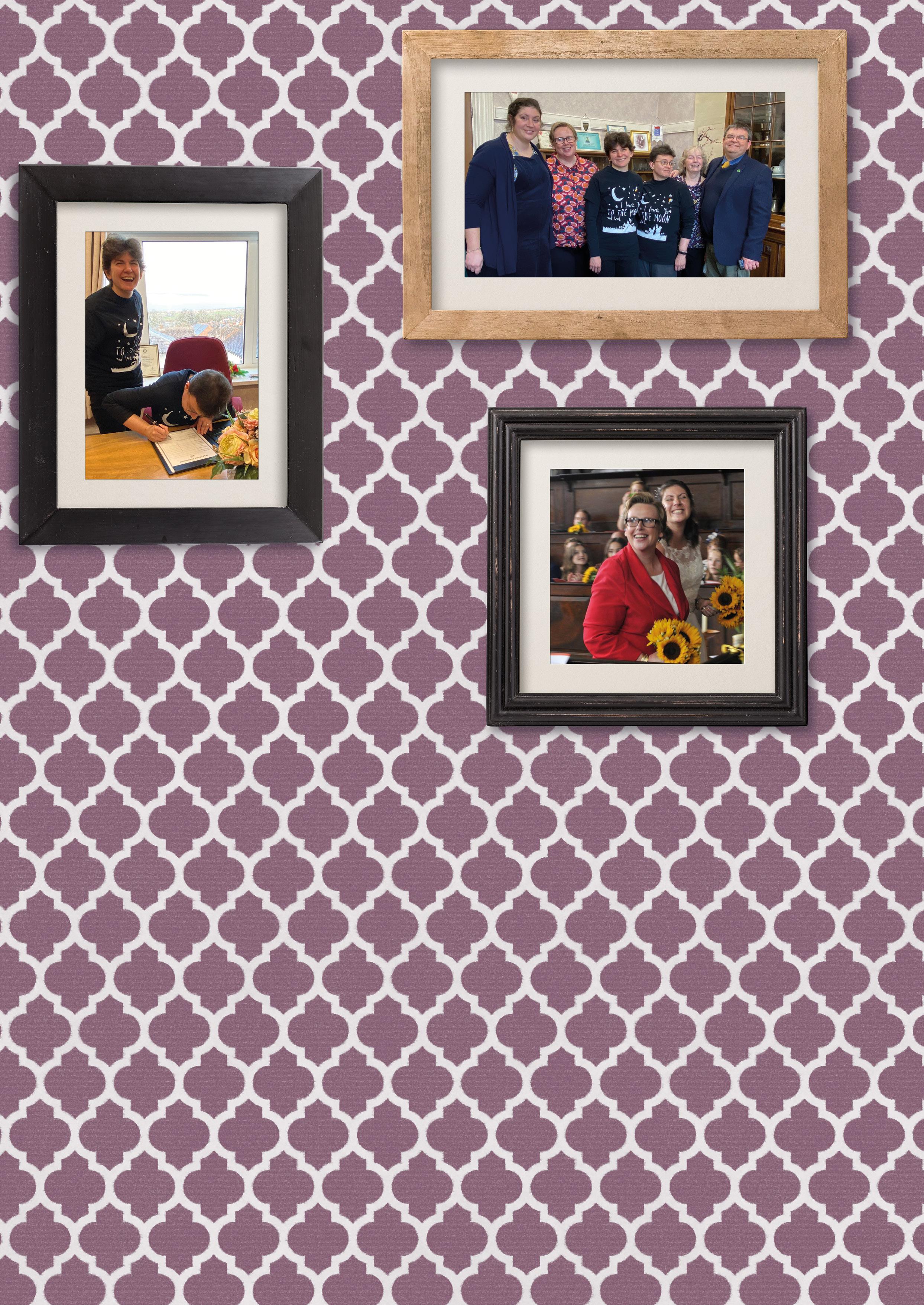
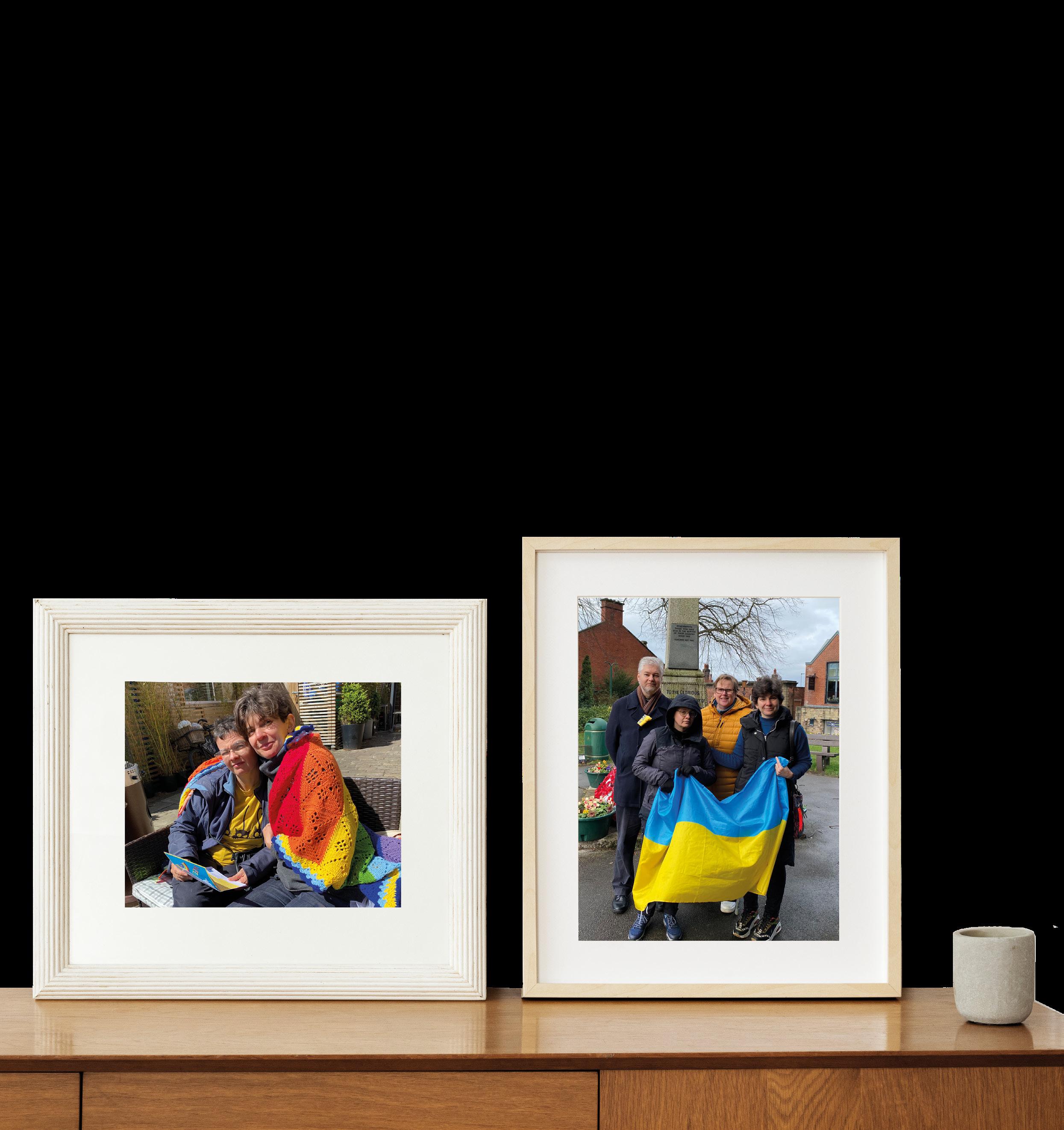
Over 8.1 million Ukrainians were displaced last year after Russia invaded Ukraine. These refugees of war fled all over Europe and some of them came to the UK. Yulia and Tetiana were two of them. They are a lesbian couple who were previously living in Kyiv. A country that not only doesn’t recognise samesex marriage but is under attack from a country that demonises and prosecutes queer people for just being themselves. The couple was welcomed in with open arms by another lesbian couple in Derbyshire, Sarah and her wife Helen. Sarah tells the entire story in great depth, from the adjustment period, the lessons they learned along the way, and the acceptance of what she had taken for granted in such an accepting country.
Sarah lives in Belper, a small town in Derbyshire. She tells me that for a long time, she has wanted to make a difference, and in many ways she has. From setting up an LGBTQ+ Pride event in her local community to being a Stonewall Role Model. She tells me, “I've always seen the need for people to take that first step forward. I think a lot of people want to be involved in change. And they want to be involved in making a differ- ence, but they don't make that first step. They always need someone to follow.” Being someone who was brought up with a Vicar as a father and an aunt who was severely disabled, she learned to be that per- son from a young age. When the invasion of Ukraine happened, and the UK Government announced a scheme to allow families to host Ukrainian refugees, Sarah and Helen were keen to help out the best they could. Sarah explained, “There was a lot of talk about the Homes for Ukraine scheme, and how the government would support people and pay people to host and things like that. But nothing was mentioned about people with disabilities or LGBT people. So, my wife and I decided that we would look into hosting, but we wanted to host an LGBT couple specifically.” They put out feelers, but the attempt was hopeless. Until an article in the BBC reached a woman with friends in Berlin, these friends were Yulia and Tetiana, who were hoping to seek refuge in the UK. Sarah explains why hosting a queer couple was so important, “I think, because it's always the white, heterosexual, cisgender, able-bodied, and usually men, not always, but usually men that are represented and talked about openly. And I just got so fed up with that.” She wanted to ensure that someone from a marginalised group was safe.
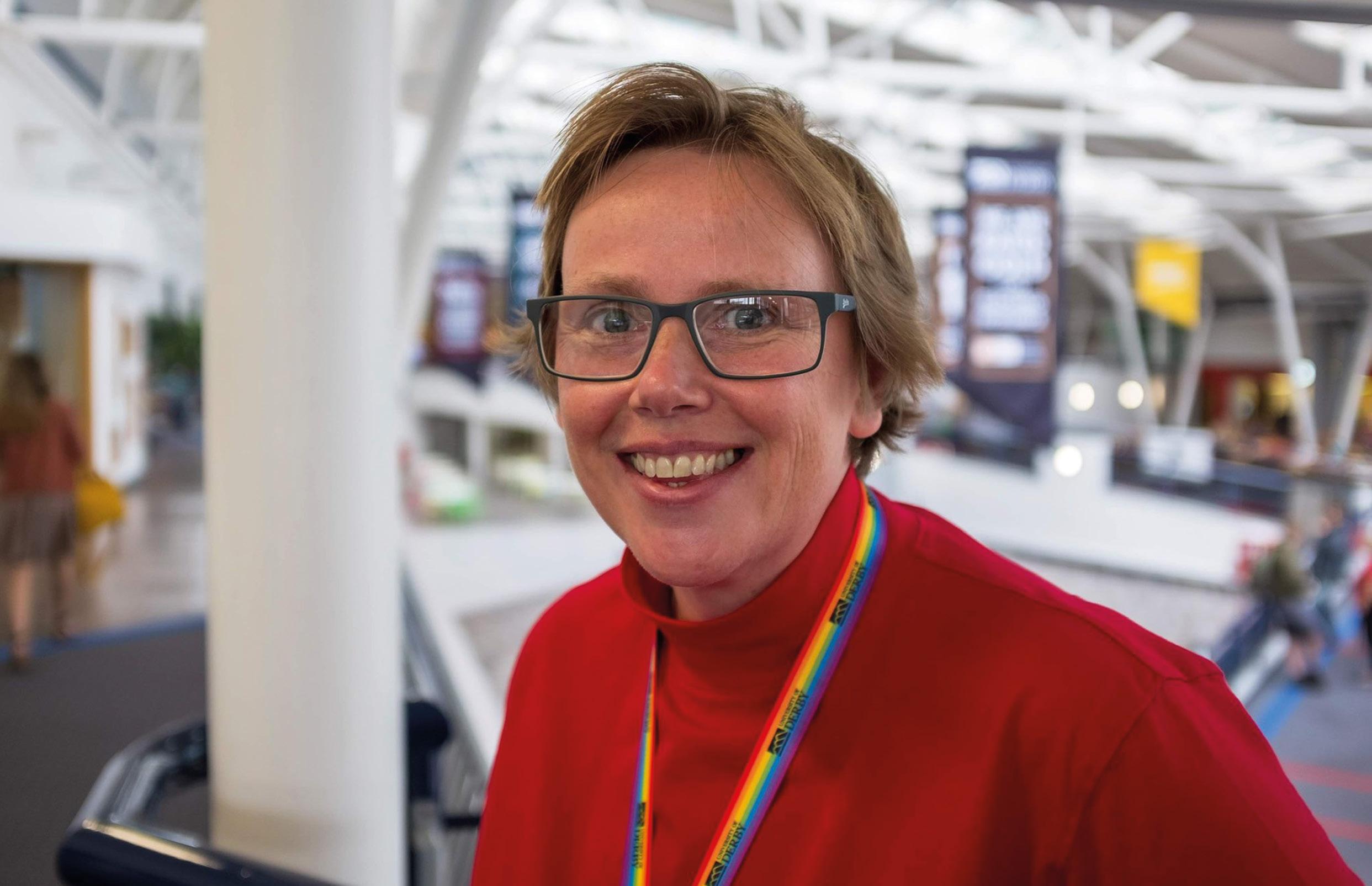
In May 2022, the couple arrived at Sarah and Helen’s home. The adjustment period was interesting, Sarah tells me. Explaining that the adjustments they had to make were twofold, firstly working out how they were going to live with people they had never met before. For the first two weeks, as the Ukrainian couple’s trauma started to fade, Sarah and Helen treated them like guests, but that wasn’t a healthy way to continue that living situation. “We knew that if we were going to be able to do this successfully,” Sarah explains, “we had to feel that we were on as equal a footing as we could possibly be in that situation.” Secondly, was the adjustment that just Yulia and Tetiana felt. The couple was suffering from imposter syndrome, they didn’t necessarily believe they were any less persecuted than anyone else. That was until they saw the difference between being queer in the UK and Ukraine. “They realised all the things they could suddenly do,” Sarah tells me, “That they'd never been allowed to do in Kyiv. And most of that was, you got involved but this police involvement was nothing like the Ukrainian couple had ever experienced - it was positive. Sarah describes why that was so pivotal for them, “That was a hugely affirming experience for Yulia and Tetiana. It was a relief for Helen and me but it was really affirming for them because, you know, the police were on their side. They weren't just there to react.” know, openly be a couple and hold hands and talk about each other and introduce each other as a couple.” However, within one week of the couple arriving at Sarah and Helen’s home, the four of them experienced a hate crime, in the form of a neo-Nazi ripping down a pride flag on their property. The police
The whole experience brought on a myriad of different emotions for Sarah and Helen. Sharing your home and your safe space with people you hardly know is sure to be a difficult task. Looking back, Sarah tells me how she felt, “It was hard sharing our home, we've got quite a lot of space. So, it meant that they could have their own space, we had our own space, and then we have shared space. And it was really hard knowing that there was always someone else there that we knew, but we didn't know very well. And that at times got a bit claustrophobic.”›
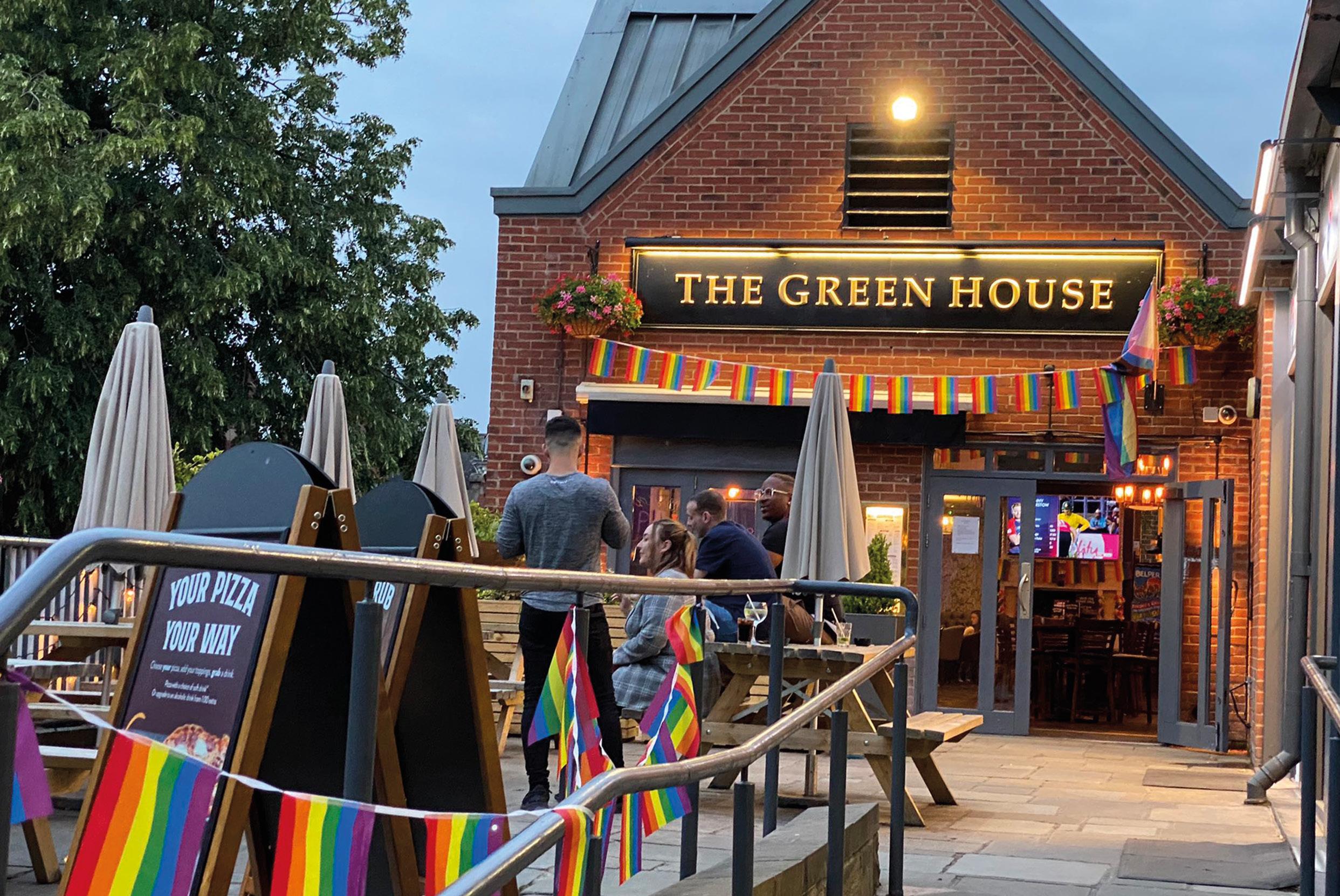
With a small chuckle and a slight hint of irritation, Sarah explains that she sometimes felt like a nagging parent, "It was when they constantly didn't clean up after themselves and just didn't look after the things that we'd worked really hard to be able to have.” Sarah, who is celiac, points out one example, “I would ask them to wipe up all the crumbs on the breadboard after they’d used it. They’d do it for two days and then they stopped doing it. We turned into these parents because of their behaviours, and they became like teenagers. And we were nagging them.”
There was, of course, a massive silver lining above it all – being able to be part of such a heart-warming journey. “It was amazing,” she exclaims, “I mean, there aren't really any words to describe seeing two adult women suddenly being so open about their sexuality and gender identity. And other people just celebrating with them.” Seeing that unfold made Sarah look back at her own life and think about the things that she had maybe taken for granted, “I think it's the small things that as a gay woman, I take very little for granted in terms of my visibility. And the way I have to protect myself at times. But I think, the privilege of seeing these two people, literally, have their relationship just flourish sud- crease their chances of being able to stay. As they start their new life together in the small town of Belper it is good to know they have the support of the community behind them. When they got married the story reached the BBC, “So many people have been stopping them in the streets, even in Derby, congratulating them, and they've absolutely loved it.” Having witnessed all this happen Sarah says, “That has felt like a massive win for diversity and inclusion in society. So yeah, that's been brilliant.” denly, because they could be who they really were within a community that loved the fact that they were living in their community.”
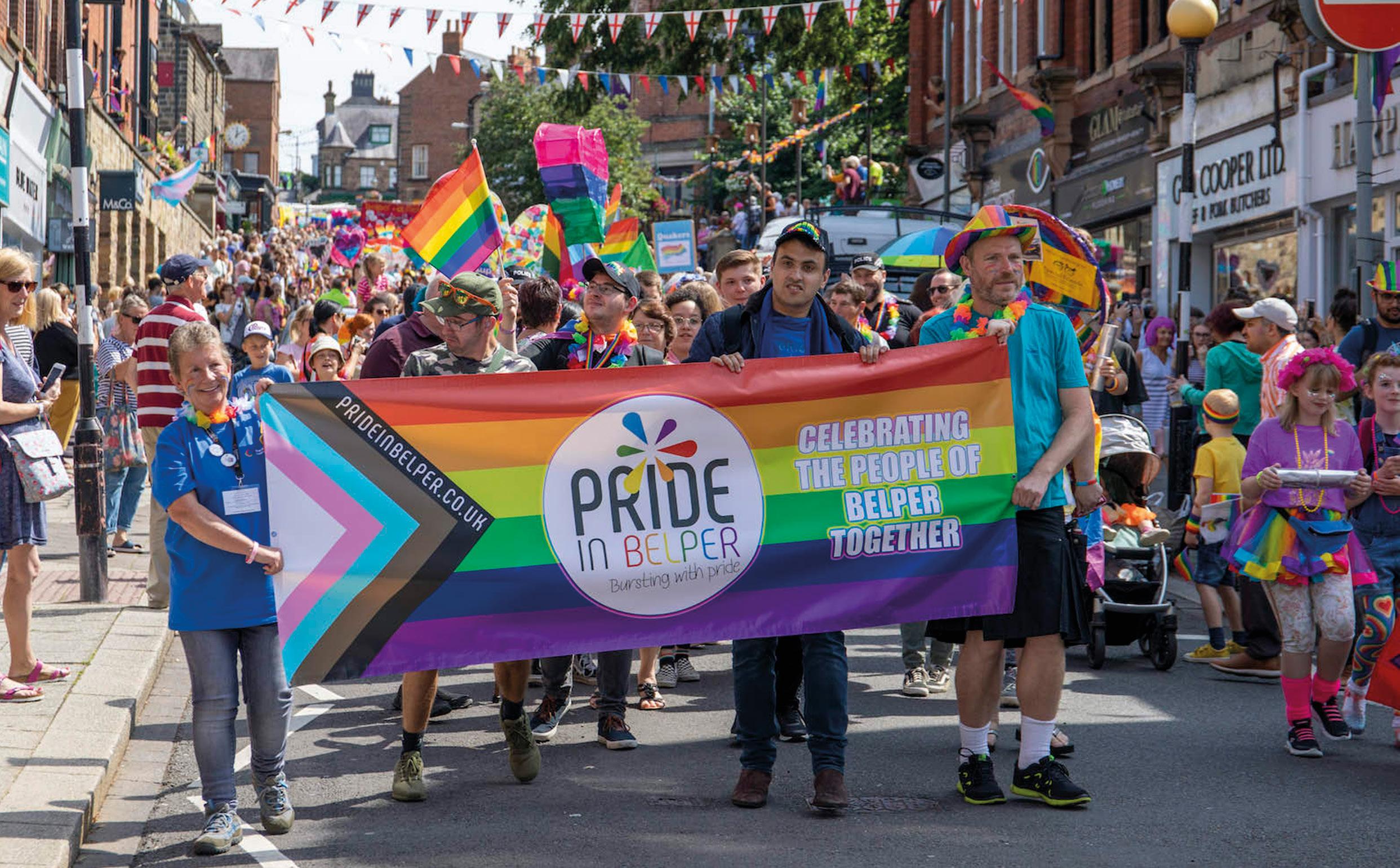
Since the beginning of March 2023, Yulia and Tetiana are now married, they’ve both got new jobs, and they have moved out of Sarah and Helen’s home. The pair are hoping to stay in the UK after their settlement status expires, they secured two jobs that help the community which will hopefully in-
For Sarah and Helen, life goes back to normal, their home is quieter, and, I can only guess, a lot tidier. But looking back at the whole experience Sarah has found an ever-growing love for being queer, “I would absolutely hate to be straight,” she tells me through muted laughter, “I couldn’t trailblaze anything, there's such a creative energy and there's such a deep passion and desire for inclusion. So, I think it's brought me a lot of joy. It brings me courage, being gay gives me a lot of courage.”•











